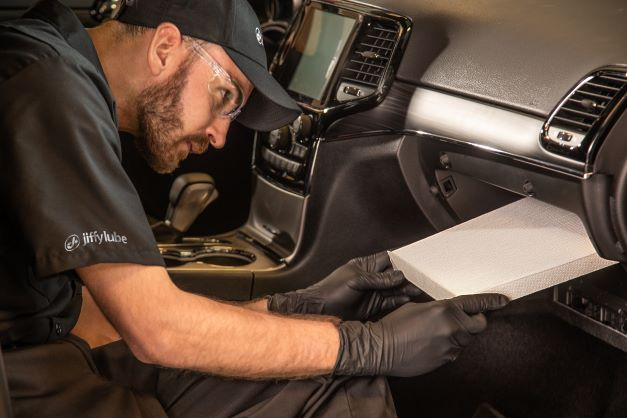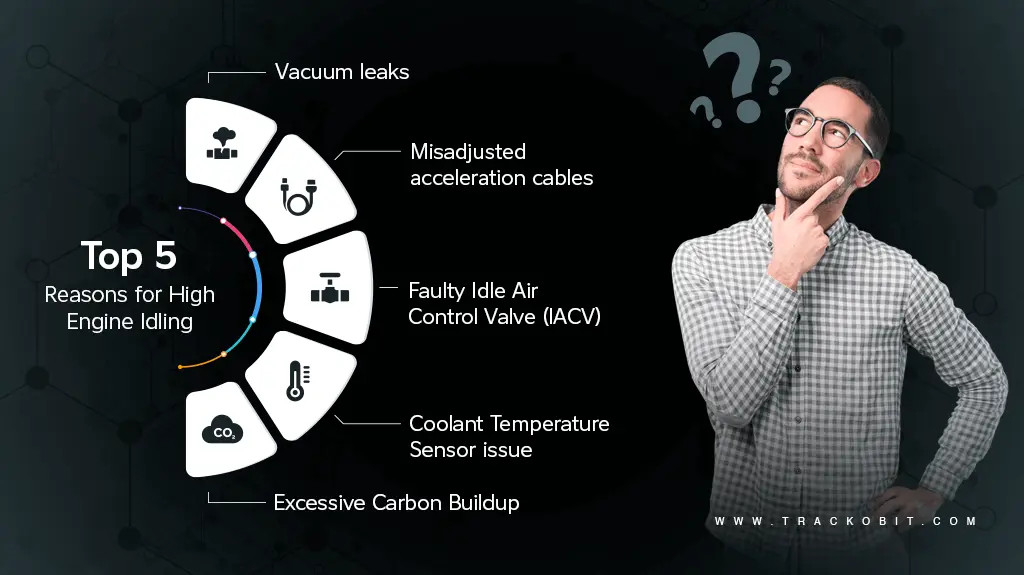How Much Does It Cost To Fix AC In Car?
How Much It Cost To Fix Ac In Car? Addressing car AC repair expenses can be straightforward when you understand the influencing factors. CARDIAGTECH.NET helps you discover how to maintain a cool and comfortable ride by diagnosing common AC issues, exploring repair options, and providing cost-effective solutions, ensuring optimal performance of your vehicle’s climate control system. Enhance efficiency and precision with professional-grade auto repair tools.
1. Understanding Your Car’s AC System
Most people underestimate the intricate nature of car air conditioning systems. When you activate the AC to cool down the cabin, a complex process unfolds beneath the hood. Understanding the components and how they function can help you recognize common issues.
In its most basic form, a car’s air conditioning system cools by converting refrigerant from a liquid to a gas. The refrigerant absorbs heat and humidity as it changes state. This process produces cool, dry air, greatly improving driving comfort.
Modern vehicles typically use these common components in their air conditioning systems:
- Compressor: The compressor, which is situated at the front of the engine, compresses the refrigerant gas. Because it is a crucial system component, its failure usually results in an expensive replacement.
- Condenser: The condenser cools the refrigerant and releases heat. It is usually located just behind the vehicle’s grille and houses fans.
- Dryer: The dryer eliminates moisture from the refrigerant, protecting the system from corrosion and damage.
- Metering Device/Expansion Valve: This part lowers the temperature and pressure of the refrigerant, which is essential for effective cooling.
- Evaporator: The evaporator is where cooling takes place behind the dashboard. The refrigerant turns back into a liquid, cooling the air that passes over it. This air is then circulated throughout the cabin, increasing comfort.
- Hoses/Lines: These transport refrigerant between system components, ensuring smooth and efficient operation.
 Car AC System Diagram
Car AC System Diagram
2. Common Car AC Problems and Solutions
Identifying the issue is the first step in fixing your car’s air conditioning system. While a qualified technician can help, you can also do some preliminary investigation yourself. Here are four common car AC problems, their potential causes, and possible solutions:
2.1. Lack of Cold Air
One of the most common problems is when the AC system blows cool air, but not cold air. Several factors could cause this, including:
- Low Refrigerant: Over time, AC systems lose refrigerant and need a recharge. This can be done at home or at an auto shop.
- Blocked or Broken Fans: If the condenser fans aren’t working, your cold airflow will be affected. Check for and remove any debris from the condenser. Then, turn on the AC to see if the fans are running.
- Dirty Cabin Air Filter: A clogged cabin air filter can reduce airflow and cooling efficiency.
- Leaks: Leaks in the refrigerant lines can affect the AC system’s pressure and effectiveness.
- Electrical Issues: Electrical problems can prevent an AC system from cooling properly.
- Failing Compressor or Compressor Clutch: If the compressor isn’t working correctly, you won’t get cold air.
Repair Options: Before visiting a mechanic, try some DIY troubleshooting. First, clear any debris from the condenser and radiator. Ensure the fans are working. Replace the cabin air filter. If the problem persists, try recharging the system with an at-home AC recharge kit (starting at $35). If you still don’t get cold air, consult a mechanic for further diagnostics.
2.2. Refrigerant Leaks
Leaks are a common cause of AC problems. Since a vehicle’s air conditioning system is a closed, pressurized system, leaks can disrupt the flow of cold air. Quick repairs are essential because untreated leaks can overwork the compressor, leading to failure.
Repair Options: Start by visually inspecting the AC system, paying close attention to fittings, seals, and hoses to ensure they are securely attached. For DIY enthusiasts, an at-home AC leak detection kit (around $145) can pinpoint the leak’s location. Once identified, replace the leaking component. Alternatively, a mechanic can diagnose the problem and locate the leak for about $200. A hose repair or replacement can cost an additional $350.
2.3. Loud Noises
A loud noise or “clunk” when you turn on the AC indicates a failing compressor clutch. Other symptoms include:
- Air that’s not cold enough
- Inability to turn the AC on or off
- Refrigerant leaks
- The clutch not turning when you turn on the AC
Repair Options: When the compressor clutch fails, you have two choices: replace only the clutch or replace the entire compressor. A compressor clutch costs between $450 and $850. Professional installation adds another $150 to $250 unless you are confident with DIY repairs. While compressors are more expensive, replacing the entire unit may be necessary if the clutch failure indicates a broader problem.
2.4. Unpleasant Odors
No one wants a cool but smelly car. A moldy or musty odor indicates bacterial or mold growth, possibly caused by:
- A malfunctioning dryer
- Mold on the evaporator
- Dirty or moldy vents
Repair Options: Start with the simplest solution: cleaning the vents with an AC vent and duct cleaner (approximately $10). If the odor returns quickly, consult a mechanic about replacing the dryer, which costs about $320 to $400, including parts and labor.
 Mechanic Inspecting Car AC
Mechanic Inspecting Car AC
3. Factors Affecting AC Repair Costs
AC repair costs vary significantly based on the problem’s cause and the vehicle type. On average, car AC repairs cost between $430 and $520. However, replacing the compressor can cost $1,300 to $2,500 or more.
Here’s a breakdown of common car AC repairs and their average costs:
| Repair | Average Cost |
|---|---|
| AC system inspection and diagnostics to find the problem | $200 |
| AC recharge (at mechanic shop) | $235 |
| AC hose repair | $350 |
| Compressor clutch replacement | $850 |
| New compressor | $800+ |
| New car AC installation or total system replacement | $2,750+ |
Several factors influence the cost of AC repairs:
- Cause of the Problem: The cost of repairs varies depending on the specific part that needs fixing.
- Type of Car: Luxury brands often have higher repair costs.
- Diagnostics: Complex diagnostics increase labor costs.
- DIY vs. Professional Repair: DIY repairs save on labor costs.
4. How to Save Money on Car AC Repairs
Keeping your car’s AC system in good condition can be affordable with the right strategies. Here are some helpful tips for saving money on AC repairs:
- Regular Maintenance: Regular maintenance can extend the life of your AC system and prevent major repairs.
- DIY Repairs: Simple repairs, such as replacing a cabin air filter or recharging the AC, can be done at home.
- Compare Quotes: Get quotes from multiple mechanics to find the best price.
- Warranty: Check if your car’s warranty covers AC repairs.
- Used Parts: Consider using used parts for older vehicles to save money.
5. Step-by-Step Guide to Diagnosing AC Problems
Diagnosing AC problems can seem complicated, but with a systematic approach, you can identify the issue and determine the best course of action. Here’s a step-by-step guide:
- Check the Basics: Start by ensuring the AC is turned on and the blower fan is working. Check the cabin air filter and replace it if dirty.
- Listen for Unusual Noises: Loud noises or clunking sounds indicate potential compressor problems.
- Inspect the Condenser: Make sure the condenser is free of debris and the fans are working.
- Check for Leaks: Look for visible signs of refrigerant leaks around fittings, hoses, and the compressor.
- Use a Manifold Gauge Set: If you have experience, use a manifold gauge set to check the system’s pressure.
- Consult a Mechanic: If you’re unsure, consult a mechanic for professional diagnostics.
6. The Importance of Regular AC Maintenance
Regular maintenance is essential for keeping your car’s AC system in top condition. Here’s why:
- Prevents Costly Repairs: Regular maintenance can catch minor issues before they become major problems.
- Extends the Life of the System: Proper care can extend the life of the AC system, saving you money in the long run.
- Improves Efficiency: A well-maintained AC system works more efficiently, providing better cooling.
- Maintains Air Quality: Regular filter changes maintain clean air quality in the cabin.
- Ensures Comfort: A properly functioning AC system ensures a comfortable driving experience.
7. Choosing the Right Mechanic for AC Repair
Choosing the right mechanic is crucial for ensuring quality AC repairs. Here are some tips for finding a reliable mechanic:
- Check Reviews: Read online reviews to see what other customers say about their experiences.
- Ask for Recommendations: Ask friends, family, or colleagues for recommendations.
- Verify Credentials: Make sure the mechanic is certified and experienced in AC repair.
- Get a Written Estimate: Get a written estimate before authorizing any repairs.
- Ask Questions: Ask questions about the repair process and the parts being used.
8. Common Misconceptions About Car AC Systems
There are several misconceptions about car AC systems that can lead to improper maintenance and costly repairs. Here are some common myths:
- Myth 1: AC Recharge is a Permanent Fix.
- Reality: AC recharge is a temporary solution. Leaks must be fixed for a permanent solution.
- Myth 2: All Refrigerants are the Same.
- Reality: Different refrigerants are used in different vehicles. Using the wrong type can damage the system.
- Myth 3: AC Systems Don’t Need Maintenance.
- Reality: AC systems need regular maintenance to function properly.
- Myth 4: DIY AC Repair is Always Cheaper.
- Reality: DIY AC repair can be cheaper for simple tasks, but professional help is needed for complex issues.
9. Symptoms of a Failing AC Compressor
The AC compressor is a crucial component of the AC system. Recognizing the symptoms of a failing compressor can help you address the problem early:
- Weak Airflow: Reduced airflow from the vents.
- Warm Air: The AC blows warm air instead of cold air.
- Loud Noises: Unusual noises from the compressor.
- Clutch Issues: The compressor clutch doesn’t engage.
- Refrigerant Leaks: Visible refrigerant leaks around the compressor.
 Damaged Car AC Compressor
Damaged Car AC Compressor
10. Why AC Performance Drops Over Time
Over time, car AC systems may lose their efficiency. Several factors contribute to this decline:
- Refrigerant Leaks: Small leaks can cause a gradual loss of refrigerant.
- Contaminants: Dirt and debris can accumulate in the system, reducing its efficiency.
- Wear and Tear: Components can wear out over time, affecting performance.
- Lack of Maintenance: Neglecting maintenance can accelerate the decline in performance.
- Climate: Extreme climates can put additional stress on the AC system.
11. Eco-Friendly AC Maintenance Practices
Maintaining your car’s AC system responsibly can benefit the environment. Here are some eco-friendly practices:
- Use Eco-Friendly Refrigerants: Choose refrigerants that are less harmful to the environment.
- Proper Disposal: Dispose of old refrigerants properly to prevent pollution.
- Regular Maintenance: Keep the system well-maintained to reduce energy consumption.
- Reduce AC Use: Use AC sparingly and opt for natural ventilation when possible.
- Recycle Parts: Recycle old parts and components to minimize waste.
12. How to Find the Best Deals on AC Parts
Finding affordable AC parts can significantly reduce repair costs. Here are some tips for finding the best deals:
- Shop Around: Compare prices from multiple suppliers.
- Online Retailers: Check online retailers for competitive prices.
- Used Parts: Consider using used parts for older vehicles.
- Discount Codes: Look for discount codes and promotions.
- Local Auto Parts Stores: Visit local auto parts stores for potential deals.
13. The Role of AC in Fuel Efficiency
The AC system can impact your car’s fuel efficiency. Here’s how:
- Energy Consumption: The AC system consumes energy, reducing fuel efficiency.
- Engine Load: Running the AC increases the engine load, requiring more fuel.
- Driving Habits: Aggressive driving with the AC on can further reduce fuel efficiency.
- Maintenance: A well-maintained AC system operates more efficiently, minimizing the impact on fuel economy.
- Alternative Cooling: Using natural ventilation when possible can save fuel.
14. Understanding Different Types of Refrigerant
Different types of refrigerants are used in car AC systems. Understanding the differences is essential for proper maintenance and repairs:
- R-12 (Freon): An older refrigerant that is no longer used due to environmental concerns.
- R-134a: A common refrigerant used in many vehicles.
- HFO-1234yf: A newer, more environmentally friendly refrigerant used in modern vehicles.
- Compatibility: It’s important to use the correct refrigerant for your vehicle’s AC system.
15. Can You Convert Your Car’s AC to a Newer Refrigerant?
Converting your car’s AC system to a newer refrigerant is possible but requires careful consideration. Here’s what you need to know:
- Compatibility: Ensure the system is compatible with the new refrigerant.
- Cost: Conversion can be expensive, involving parts and labor.
- Professional Installation: Hire a qualified technician for the conversion.
- Regulations: Check local regulations regarding refrigerant use and disposal.
- Performance: Conversion may affect the AC system’s performance.
16. Essential Tools for DIY AC Repair
Having the right tools is essential for DIY AC repairs. Here are some must-have tools:
- Manifold Gauge Set: For checking system pressure.
- Vacuum Pump: For evacuating the system.
- Refrigerant Recovery Machine: For recovering refrigerant.
- Leak Detector: For finding refrigerant leaks.
- AC Charging Scale: For accurately charging the system.
- Wrenches and Sockets: For removing and installing components.
- Safety Glasses and Gloves: For protection.
CARDIAGTECH.NET offers a wide range of tools to help you diagnose and repair your car’s AC system efficiently. Our high-quality tools ensure precision and reliability, making DIY repairs easier and more effective. Contact us at Whatsapp: +1 (641) 206-8880 or visit our website at CARDIAGTECH.NET for more information.
17. How to Prevent Mold Growth in Your AC System
Preventing mold growth in your AC system is essential for maintaining air quality and preventing unpleasant odors. Here are some tips:
- Regular Cleaning: Clean the vents and ducts regularly.
- Replace Cabin Air Filter: Change the cabin air filter regularly to prevent dirt and debris buildup.
- Dry the System: Run the fan on high after using the AC to dry out the system.
- Use AC Cleaners: Use AC cleaners to kill mold and bacteria.
- Professional Service: Have the system professionally serviced to ensure proper cleaning and maintenance.
18. The Future of Car AC Technology
Car AC technology is constantly evolving. Here’s a glimpse into the future:
- More Efficient Systems: Newer systems are more energy-efficient and environmentally friendly.
- Smart AC: Smart AC systems can adjust temperature based on passenger preferences and ambient conditions.
- Electric Vehicles: Electric vehicles use different AC systems that are more efficient and environmentally friendly.
- Improved Refrigerants: New refrigerants are being developed to reduce environmental impact.
- Integration with Vehicle Systems: AC systems are becoming more integrated with other vehicle systems.
19. Understanding AC System Pressure Readings
Understanding AC system pressure readings is crucial for diagnosing problems. Here’s what you need to know:
- Normal Pressure: Normal pressure readings vary depending on the ambient temperature and system type.
- High Pressure: High pressure can indicate a blockage or overcharging.
- Low Pressure: Low pressure can indicate a leak or undercharging.
- Using a Manifold Gauge Set: Use a manifold gauge set to accurately measure system pressure.
- Consult a Professional: Consult a professional if you’re unsure about pressure readings.
20. AC System Diagnostic Checklist
Use this checklist to diagnose common AC problems:
- [ ] Check the cabin air filter.
- [ ] Inspect the condenser for debris.
- [ ] Listen for unusual noises.
- [ ] Check for refrigerant leaks.
- [ ] Verify compressor clutch engagement.
- [ ] Measure system pressure with a manifold gauge set.
- [ ] Inspect hoses and fittings.
- [ ] Test electrical connections.
- [ ] Consult a mechanic if unsure.
 Car AC Tools
Car AC Tools
21. How to Recharge Your Car AC System
Recharging your car AC system can restore cooling performance. Here’s a step-by-step guide:
- Gather Supplies: Purchase a recharge kit, safety glasses, and gloves.
- Locate Low-Pressure Port: Find the low-pressure port on the AC system.
- Connect Recharge Hose: Attach the recharge hose to the low-pressure port.
- Check Pressure: Monitor the pressure gauge while adding refrigerant.
- Charge System: Add refrigerant until the pressure reaches the recommended level.
- Monitor Performance: Check the AC system’s cooling performance.
- Consult a Professional: Consult a professional if unsure.
22. Benefits of Using Professional AC Service
While DIY repairs can save money, professional AC service offers several benefits:
- Expert Diagnostics: Professionals can accurately diagnose complex problems.
- Proper Repairs: Professionals can perform repairs correctly to ensure long-lasting results.
- Specialized Tools: Professionals have access to specialized tools and equipment.
- Warranty: Professional service often comes with a warranty.
- Peace of Mind: Professional service provides peace of mind knowing the job is done right.
23. Understanding the AC Condenser and Its Function
The AC condenser is a critical component of the AC system. Here’s what you need to know:
- Function: The condenser cools the refrigerant and releases heat.
- Location: It’s typically located in front of the radiator.
- Maintenance: Keep the condenser clean and free of debris.
- Signs of Failure: Reduced cooling performance, overheating.
- Replacement: Replace the condenser if it’s damaged or failing.
24. The Importance of a Clean Cabin Air Filter
A clean cabin air filter is essential for maintaining air quality and AC performance. Here’s why:
- Air Quality: A clean filter removes pollutants and allergens from the air.
- Airflow: A clean filter ensures proper airflow.
- AC Performance: A clean filter improves AC cooling performance.
- Maintenance: Replace the cabin air filter regularly.
- Location: The filter is typically located behind the glove compartment.
25. Common AC Hose Problems and Solutions
AC hoses can develop problems over time. Here are some common issues and solutions:
- Leaks: Replace leaking hoses.
- Cracks: Replace cracked hoses.
- Blockages: Clear blocked hoses.
- Loose Connections: Tighten loose connections.
- Replacement: Replace damaged hoses with new ones.
26. How to Improve Your Car’s AC Efficiency
Improving your car’s AC efficiency can save fuel and money. Here’s how:
- Regular Maintenance: Keep the AC system well-maintained.
- Park in the Shade: Park in the shade to reduce heat buildup.
- Use Window Shades: Use window shades to block sunlight.
- Ventilate the Car: Ventilate the car before turning on the AC.
- Use Recirculate Mode: Use recirculate mode to cool the cabin faster.
27. Seasonal AC Maintenance Tips
Seasonal AC maintenance can keep your system in top condition. Here are some tips:
- Spring: Check the AC system after winter.
- Summer: Monitor AC performance during hot weather.
- Fall: Prepare the AC system for winter.
- Winter: Run the AC occasionally to keep components lubricated.
- Regular Inspections: Schedule regular inspections to catch potential problems.
28. Understanding HVAC Systems in Modern Vehicles
Modern vehicles have sophisticated HVAC (Heating, Ventilation, and Air Conditioning) systems. Here’s what you need to know:
- Integrated Systems: HVAC systems are integrated with other vehicle systems.
- Climate Control: Automatic climate control maintains a consistent cabin temperature.
- Multiple Zones: Some vehicles have multiple climate control zones.
- Sensors: Sensors monitor temperature and humidity.
- Computer Control: Computer control optimizes HVAC performance.
29. Common Electrical Issues in AC Systems
Electrical issues can affect AC performance. Here are some common problems:
- Blown Fuses: Replace blown fuses.
- Faulty Relays: Replace faulty relays.
- Wiring Problems: Repair damaged wiring.
- Sensor Issues: Replace faulty sensors.
- Grounding Problems: Fix grounding problems.
30. Maximizing the Lifespan of Your Car’s AC System
Maximize the lifespan of your car’s AC system with these tips:
- Regular Maintenance: Keep the system well-maintained.
- Proper Use: Use the AC system properly.
- Prompt Repairs: Address problems promptly.
- Quality Parts: Use quality parts for repairs.
- Professional Service: Seek professional service when needed.
Experiencing AC issues? CARDIAGTECH.NET offers a comprehensive range of automotive diagnostic tools to help you identify and resolve AC problems quickly and efficiently. From manifold gauge sets to refrigerant leak detectors, our tools provide the accuracy and reliability you need to keep your AC system running smoothly. Contact us today at Whatsapp: +1 (641) 206-8880 or visit our website at CARDIAGTECH.NET to explore our selection and find the perfect tools for your needs. Our address is 276 Reock St, City of Orange, NJ 07050, United States.
FAQ: Car AC Repair Costs
1. How much does it cost to recharge car AC?
The cost to recharge your car AC typically ranges from $150 to $300, depending on the mechanic and type of refrigerant needed.
2. How often should I recharge my car AC?
It’s recommended to recharge your car AC every 2-3 years, or when you notice a decrease in cooling efficiency.
3. What are common signs my car AC needs repair?
Common signs include weak airflow, warm air blowing, unusual noises, and unpleasant odors.
4. Can I recharge my car AC myself?
Yes, you can recharge your car AC yourself with a DIY recharge kit, but professional service is recommended for best results.
5. What causes car AC to stop working?
Common causes include refrigerant leaks, compressor failure, blocked condensers, and electrical issues.
6. How much does it cost to replace car AC compressor?
Replacing a car AC compressor can cost between $800 and $1500, including parts and labor.
7. Is it worth fixing car AC?
Yes, fixing your car AC is worth it for comfort and maintaining the car’s value.
8. How can I make my car AC colder?
Ensure your AC system is properly charged, clean the condenser, and replace the cabin air filter.
9. What is the most common AC problem in cars?
The most common AC problem is refrigerant leaks, which reduce cooling efficiency.
10. How long does car AC repair usually take?
Simple repairs like recharging can take 1-2 hours, while more complex repairs like compressor replacement may take 4-6 hours.
Don’t let AC problems keep you uncomfortable. Contact CARDIAGTECH.NET today to find the tools you need to diagnose and repair your car’s AC system efficiently. Our expert team is ready to assist you with high-quality products and support. Reach out to us at Whatsapp: +1 (641) 206-8880 or visit our website at CARDIAGTECH.NET. Visit us at 276 Reock St, City of Orange, NJ 07050, United States. Act now and ensure your AC system is ready for any weather!







